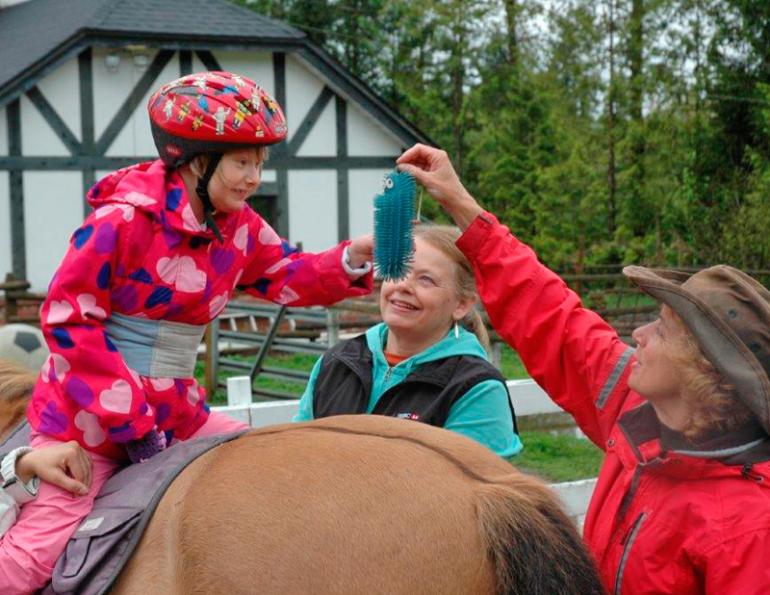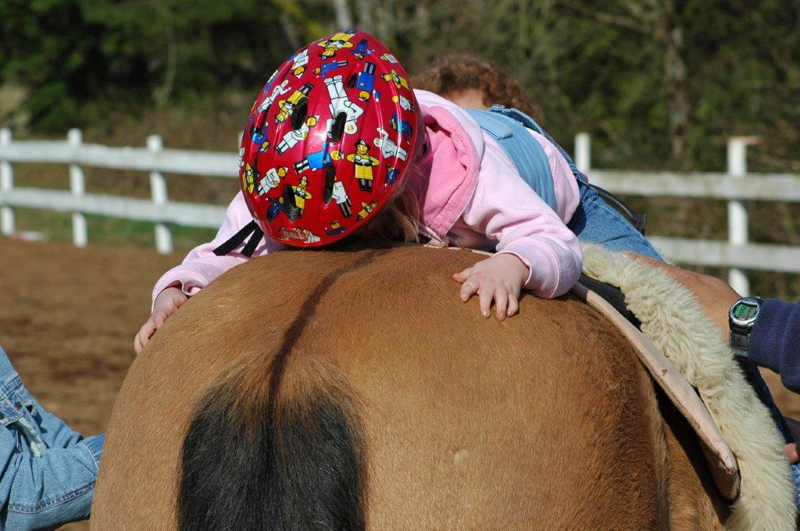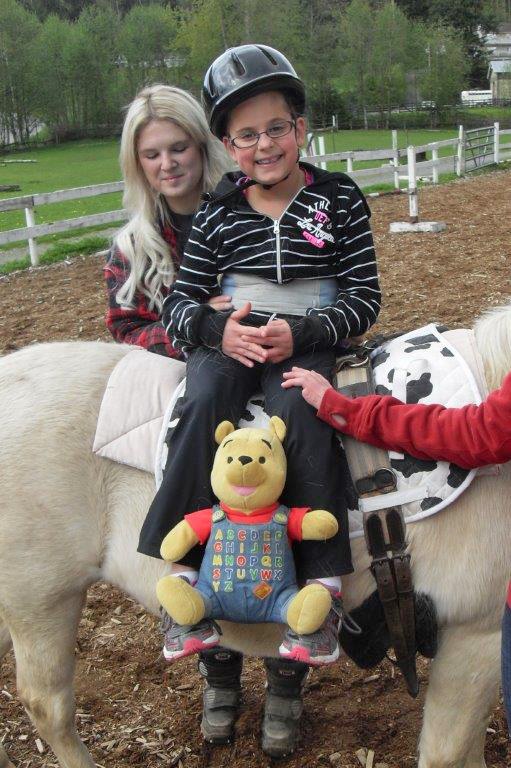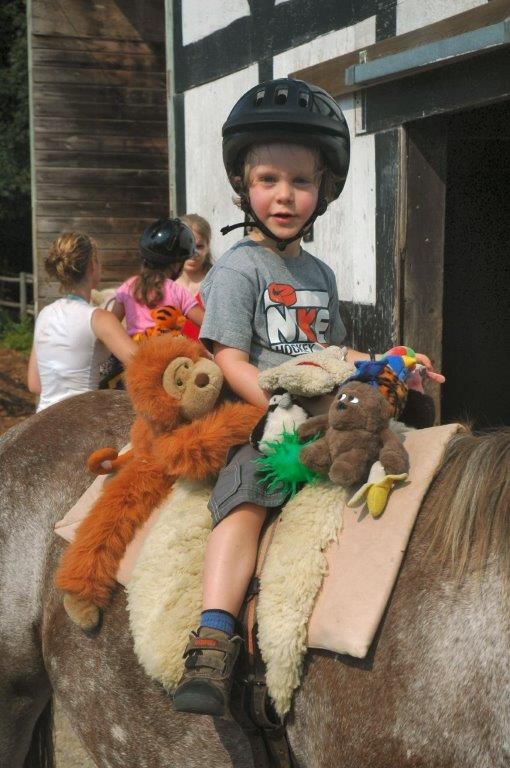Therapy horses help challenged children improve their confidence, endurance, balance, and coordination. Photo courtesy Judy Todd, Abbotsford Physiotherapy.
Bo works two afternoons a week for two hours. His warm-up may include a dressage session to improve the quality of his movement, or a run on the trails to let him express himself before the children arrive.
“He’s currently working simultaneously with a mare that he’s not usually turned out with, so I get them comfortable standing beside each other. He’s tacked up with bareback pads or sheepskins, depending on the needs of each rider, and long-lined for most of the session, as that improves his movement. He parks himself at the mounting block and stands perfectly still for however long it takes to get the rider organized on board. Hippotherapy is mostly done at a walk, although occasional trots are thrown in as a reward for the kids and to challenge their core stabilizers. At some point in each session we leave the arena for a trip to the creek, field, or one of the sensory integration areas. As soon as their work is done, the horses are fed, even if it’s not exactly their mealtime, so I get to say thank you immediately.





